News
FG hands over 64 CNG buses to labour, student leaders
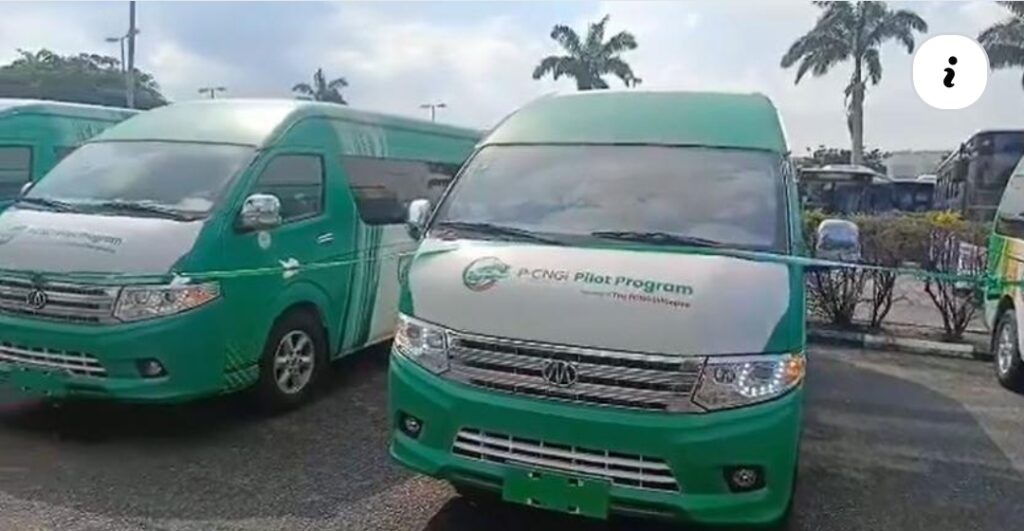
The Federal Government handed over 64 compressed natural gas (CNG) buses to representatives of the Trade Union Congress (TUC), the Nigerian Labour Congress (NLC), and the National Association of Nigerian Students (NANS).
The handover took place on Sunday at the State House Conference Centre, Abuja, as part of activities marking Nigeria’s 64th independence anniversary.
According to a statement by Bayo Onanuga, Special Adviser to the President (Information & Strategy), when deployed for commuter service, the buses will significantly reduce transportation costs in the country, bringing hope for a more affordable and efficient public transport system.
The Coordinating Minister of the Economy and Minister of Finance, Wale Edun, led the government delegation that included the Minister of Information and National Orientation, Mohammed Idris, the Minister of Budget and Economic Planning, Abubakar Bagudu, and the Minister of State for Youth Development, Ayodele Olawande.
Speaking at the event, Edun described the distribution of the buses as fulfilling President Bola Tinubu’s promise to provide affordable and efficient transportation to support Nigerians after the removal of fuel subsidies under the Presidential Initiative on Compressed Natural Gas (PCNGi).
He emphasised that this initiative aims to alleviate the burden on the poor and vulnerable and support macroeconomic reforms that would position the country on the path to economic stability.
The Minister further explained that the symbolic handover of 64 buses on the eve of Nigeria’s National Day marks the beginning of a broader national rollout, with the plan to distribute over 500 CNG buses and 100 electric vehicles in the first instance.
He added that the CNG initiative aligns with Nigeria’s commitment to cleaner energy while leveraging its energy resources for industrialisation.
”Today marks another critical milestone in the policies of President Tinubu. It is a transition to cleaner fuel. It is for Nigerians. The emphasis is on mass transit. The minister said there is an emphasis on intervening on the side of workers so that they have cheaper transport to cope with rising prices.
He also highlighted the CNG initiative’s impact on inflation, saying:
”We’ve had an initial spike in inflation; now it has peaked, and it is coming down. Mr. President and the whole team are determined to ensure that we keep inflation coming down, and this is one of the major ways.”
The Coordinating Minister of the Economy noted that the fuel cost for CNG-powered vehicles is about one-third of the fuel for petrol-powered vehicles.
He said motorists can now pay as low as N15,000 to fill a tank instead of N50,000 or more.
”Today, it is CNG. Tomorrow, it will be helping farmers to cope with the remainder of the wet season planting and then the dry season planting, starting from November, with fertiliser, inputs, seeds, and herbicides.
”This is all to get prices down and get the economy moving again, ” he said.
The Secretary-General and Chief Executive of TUC, Comrade Nuhu Toro; NANS president, Comrade Lucky Emonefe; and the Head of International Desk, NLC, Comrade Uche Ekwe, commended President Tinubu for the gesture. They called for more CNG buses to be made available to the public.
Toro thanked the President for implementing the N70,000 new national minimum wage.
”This move is a significant step in alleviating the economic burden of Nigerian workers.
NANS president Comrade Emonefe praised the government for its commitment to education and student welfare, citing the provision of a student loan scheme for higher education.
“Nigerian students are happy to be celebrating the 64th anniversary of independence. We are not only happy with the CNG buses; we believe that the current President loves the welfare of students and has shown his commitment to this.
The NLC representative noted that the benefits of the CNG buses would become more apparent once more buses are deployed across the country.
”If we get more buses, the effect will translate immediately to Nigerians. If people start entering these buses, they will publicise it in the public and their neighbourhood,” he said.
Michael Oluwagbemi, Programme Director/Chief Executive of PCNGi, said that since its establishment one year ago, over 125 conversion centres have been established, compared to the initial seven.
He said investment in the sector has exceeded $175 million, with 12 new mother stations commissioned and 75 more under construction.
Technician training is being ramped up, with 40 new technicians trained weekly. Over 34,000 conversion kits have been ordered, with more than half already distributed.
He said vehicle conversions are taking place at 53 centres in eight states.
He said the centres would be expanded to all 36 states and the FCT.
News
Natasha : Pro-Akpabio Protesters Storm UN complex
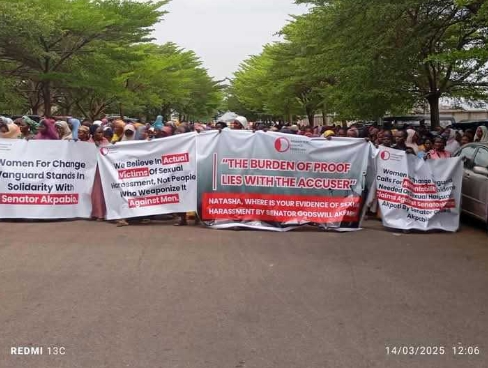
Protesters under the platform of Women for Change Vanguard took the lingering face-off between Senate President, Godswill Akpabio, and Kogi lawmaker, Natasha Akpoti-Uduaghan, to the United Nations office in Abuja on Friday.
Chanting solidarity songs and displaying several banners that read ‘We believe in actual victims of sexual harassment, not people who weaponise it’ and ‘The burden of proof lies with the accuser”, the protesters challenged Akpoti-Uduaghan to provide evidence of the alleged sexual harassment she accused Akpabio of
The protest comes barely 24 hours after the Kogi Central senator filed a contempt charge against Akpabio and others over her six-month suspension without pay from the Senate.
Recall that Akpoti-Uduaghan had escalated her dispute with Akpabio, presenting her case at a United Nations forum, International Parliamentary Union, alleging political victimisation.
She was suspended on March 6 after a heated confrontation with the Senate leadership over a new seating arrangement, which she claimed was designed to undermine her.
Tensions intensified when Akpoti-Uduaghan, on national television, accused Akpabio of punishing her for rejecting his alleged s3xual advances.
Addressing the representatives of the United Nations in Abuja, the leader of the protesters, Irene Umoh, explained that the women’s group decided to petition the UN on Friday following the manner in which Akpoti-Uduaghan has been trying to play the victim on the international stage.
Umoh also charged the global organisation to ask the suspended legislator to provide the world with credible evidence of the alleged s3xual harassment.
She said, “This is not the first time Senator Natasha has made serious allegations against a prominent figure. Such actions risk becoming a weapon she wields against men in power, undermining the core principles of our fight against sexual violence.
“As mothers and members of the Women for Change Vanguard, we are acutely aware of the implications of false accusations. Such claims not only harm the accused but also diminish the experiences of genuine survivors.
Umoh also charged the global organisation to ask the suspended legislator to provide the world with credible evidence of the alleged s3xual harassment.
She said, “This is not the first time Senator Natasha has made serious allegations against a prominent figure. Such actions risk becoming a weapon she wields against men in power, undermining the core principles of our fight against sexual violence.
“As mothers and members of the Women for Change Vanguard, we are acutely aware of the implications of false accusations. Such claims not only harm the accused but also diminish the experiences of genuine survivors.
News
Rivers Assembly pass new major bills into law

The Rivers State House of Assembly has endorsed three new bills aimed at shaping the state’s governance structure.
The bills were passed during the Assembly’s 136th Legislative Sitting on Friday and will be sent to Governor Siminalayi Fubara for approval.
The approved bills include the Rivers State House of Assembly (Powers and Privileges) Bill, 2025, the Rivers State Independent Electoral Commission (RSIEC) Bill, 2025, and the Rivers State Local Government Bill, 2025.
The Powers and Privileges Bill seeks to give the Assembly certain rights and protections to carry out its duties without interference.
The RSIEC Bill will replace the 2018 electoral law and set new guidelines for the state’s electoral body in line with the 2022 Electoral Act and the 1999 Constitution.
The Local Government Bill will replace previous laws from 2018, 2023, and 2024, introducing a new framework for managing local government councils.
Speaker Martin Chike Amaewhule explained that the House was adopting parts of the Legislative Houses (Powers and Privileges) Act of 2017, which grants lawmakers certain authorities in carrying out their duties.
He also noted the need for the RSIEC Bill to align with national electoral laws, while the Local Government Bill was crafted to ensure compliance with constitutional provisions.
After discussions, members of the Assembly agreed on the importance of the bills and gave their approval.
Rivers Assembly Adjourns Plenary Indefinitely
The fresh budget presentation scheduled for Wednesday March 19 may have suffered a setback as the Rivers State House of Assembly has adjourned its plenary indefinitely.
This decision, made during a session held at the assembly quarters in Port Harcourt on Friday, has raised concerns about the fate of the 2025 Appropriation Bill.
Governor Siminalayi Fubara had earlier written to the Assembly, requesting a new date for the budget presentation after his initial attempt on March 12 was unsuccessful.
He and his entourage were reportedly locked out of the Assembly Complex, despite prior notice of his visit.
In his latest letter, dated March 13, the governor proposed presenting the budget on March 19 or any other convenient date within the month.
He reminded the lawmakers that the Supreme Court, in a ruling on February 28, had directed the presentation of the budget to the Assembly.
News
El-Rufai’s son apologises to Nigerians over tweet supporting Southern Kaduna k!llings
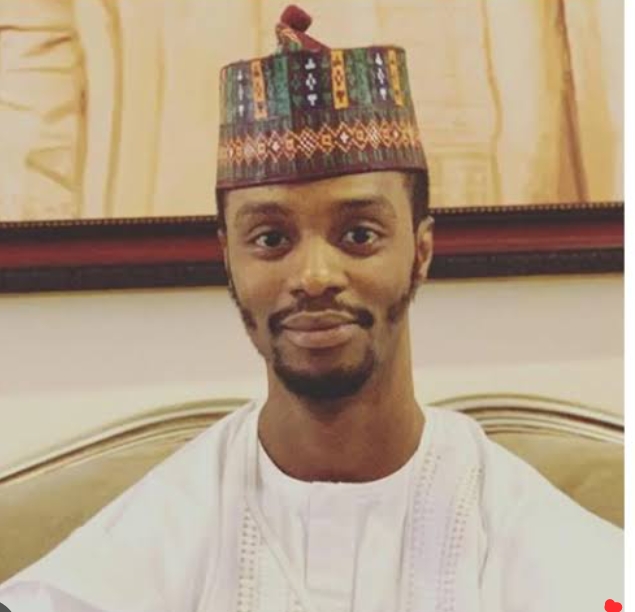
Bashir El-Rufai, the son of ex- Kaduna State Governor Nasir El-Rufai, has begged Nigerians following backlash over his controversial comment on X (formerly Twitter).
Bashir, known for his brash social media presence, had posted a controversial remark suggesting that the killings in Southern Kaduna would persist if residents continued to attack Fulani herdsmen.
It is your stupid mother that is an elephant. And Southern Kaduna residents will keep seeing sheghe (trouble or suffering) if they continue to attack indigenous Fulani herdsmen.
” Oloshi,” Bashir wrote in response to an X user, @qykali, who had accused his father of overseeing “industrial-scale ethnic cleansing” in the region during his tenure as governor.
The term sheghe (shege)—a Hausa slang implying severe suffering—was perceived as an endorsement of violence, igniting outrage from many Nigerians who saw it as an attempt to justify the recurring massacres in Southern Kaduna, where suspected herdsmen have repeatedly attacked communities.
Following the backlash, Bashir deleted the tweet and later offered an apology, admitting that his initial post was “in bad taste.”
My tweet about Southern Kaduna residents & persecuted Fulani herdsmen was in bad taste & also badly written in an attempt to make a point in the heat of the moment. I apologize for that to those that know me, and are aware that I don’t harbor such sentiments,” he wrote on X.
-

 News10 hours ago
News10 hours agoPolice confirm report of lady who jumped into lagoon to her d3ath from 3rd Mainland Bridge
-

 News22 hours ago
News22 hours agoRivers State Now Cocoa Farm: Ugochiyere Hands over to Adeyanju
-
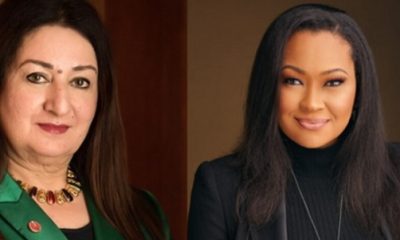
 News7 hours ago
News7 hours agoCanadian Senator throws weight behind Natasha Akpoti-Uduaghan
-

 News7 hours ago
News7 hours agoSad! Ex-House of Assembly majority leader dies in London
-
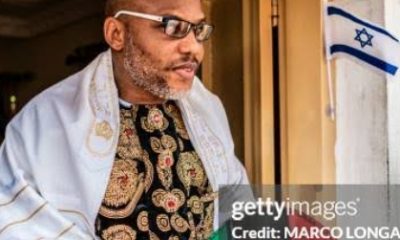
 News7 hours ago
News7 hours agoFG advises Nnamdi Kanu to renounce IPOB for his release
-

 News9 hours ago
News9 hours agoJustice Delivered! Nigerian lady falsely declared dead wins UK court case, retains £350,k home
-
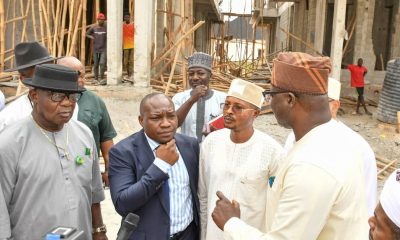
 News23 hours ago
News23 hours agoReps Order Arrest of FCDA Officials Over Alleged Building Code Violations
-
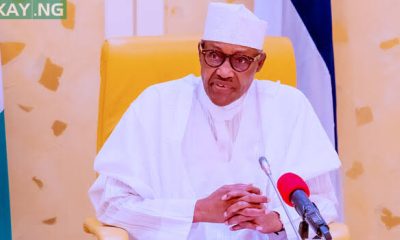
 Politics24 hours ago
Politics24 hours ago2027: “I do not have plans to dump APC that supported me- Buhari






